Alexander the Great was one of the most brilliant military leaders in history. He conquered much of what is now modern-day Turkey, Iran, Pakistan and India and was undefeated for most of his life. But in 324 B.C., Alexander faced a mutiny from some of his soldiers. This mutiny could have changed the course of history had it not been for Alexander’s quick thinking and leadership skills.
Alexander the Great was a Macedonian king who conquered much of the world early in the first millennium BCE. He was known for his military genius and his ability to create a cohesive army from disparate groups of soldiers.
Alexander’s father, King Philip II of Macedonia, had been assassinated by one of his generals before Alexander was born. Alexander grew up under the influence of his mother, Olympias, who raised him as a godlike figure. When he became king at age 20, he began a series of military campaigns that would eventually take him across most of Asia Minor, Persia, Egypt, and India.
Although he was successful in battle against many enemies, Alexander faced several mutinies within his ranks during these campaigns. In some cases, these mutinies were caused by disagreements over strategy or whether they should continue their campaign or return home with their booty and glory already won. In other cases, such as at Gaugamela (in modern-day Iraq), they were due to how far away they were from home and how difficult it would be to get back there safely once they finished fighting against Darius III. He succeeded Darius II after Alexander killed him.
The Macedonian Army is the land warfare branch of the Military of Macedonia. It was established in 2001, re-established in 2009 and has been active. Macedonians were renowned for their military prowess. They were well-trained and disciplined, and they fought in a well-organized manner. The Macedonian phalanx was one of the most powerful armies in history, and it played a key role in the expansion of Macedonia under Philip II.
The Macedonian Army currently consists of the 1st Brigade, “Alexander the Great,” with its two infantry battalions and an artillery battalion; the 2nd Brigade, “Vardar,” with two infantry battalions, a mechanized infantry battalion and artillery battalion, 1st Air Force Brigade with two aviation regiments and a special purpose regiment (military intelligence), 1st Special Forces Regiment; 1st Engineer Regiment; Logistic Support Unit; Military Police Battalion; Signal Battalion and Intelligence Battalion.
Also Read | Alexander’s Most Glorious Battle
The Mutiny of Hyphasis
After much debate, the Army reached the Hyphasis River (or, as it is known today, the Beas) and decided to turn back after much debate. Diodorus Siculus reports that this decision was due largely to their fear of continued warfare in India:
Alexander noted that his soldiers were exhausted after years of constant campaigning. He appealed passionately to them to raise their spirits for the upcoming battle against the Gandaridae. Many soldiers had been killed, and there was no relief in sight. Their horses’ hooves were worn thin by constant marching, their armor and weapons were wearing out, and they had almost run out of clothes. They had to wear Indian clothes and sew them themselves because the heavy rains that season made it impossible for anyone else to work.
Alexander’s speech recounted all their exploits throughout the Persian campaign. It explained how their empire would stretch from India to the Pillars of Heracles when he finished his conquests. A universal empire seemed within reach.
If they turned back, he warned that too many warlike peoples would remain unconquered between the Eastern Sea and the Hyphasis. He added that rebellion and instability within the empire could result if they were left unchecked. Alexander reminded his soldiers that he had fought alongside them and was therefore entitled to share in the spoils of war. If any deserted now, they would not be a part of it.
Coenus, the son of Polemokrates, came forward and spoke for the troops. He reminded Alexander that many Greek and Macedonian soldiers had been wounded or killed in battle, while others were homesick and no longer wished to continue fighting in Asia. Coenus advised Alexander to return home and replace his exhausted troops with fresh recruits. He warned the king to be prepared for contingencies, as he might lose his troops if fortune deserted him.
When Alexander saw his officers cheering for Coenus, he threatened to leave behind those unwilling to venture with him. But after three days in his tent and sensing a change of heart within the Army, he withdrew this threat.
The Mutiny of Opis
Alexander’s troops had another mutiny later in his career, at Opis in 324 BCE. Alexander tried to discharge his Macedonian veterans, who were no longer young and strong enough for active duty. But the veterans took offense at this attempt by Alexander to get rid of them once and for all. Arrian states that the king’s character was adversely affected by his Asian subjects’ obsequies and Macedonians believed foreign troops were replacing them.
Alexander plunged into the crowd of rebellious troops and ordered thirteen of its leaders to be arrested and executed immediately. Next, he gave a speech describing how far his Army had progressed under his father’s leadership; now, they were at the center of an empire that covered the entire world. He appointed Persian commanders to high command positions three days later, and the Macedonian officers rushed to the palace asking that they be readmitted. Alexander soon reconciled with his men and arranged a banquet celebrating harmony between the natives of Macedonia and Asia.
Conclusion
Alexander faced two mutinies during his campaign and managed to overcome both of them without difficulties. But on his way back, the Macedonian General faced a more complicated situation. The Athenian hostages proved to be an obstacle to Alexander’s plans. It caused discontent in the Army, and Alexander needed to find a scapegoat for his soldiers’ anger and frustration due to crossing the river Granicus. This scapegoat was Cleitus, the man who saved Alexander’s life during the battle in Granicus but who got killed at the wedding in Susa by hemlock poisoning.
For more such historical content stay tuned to Panchayiti





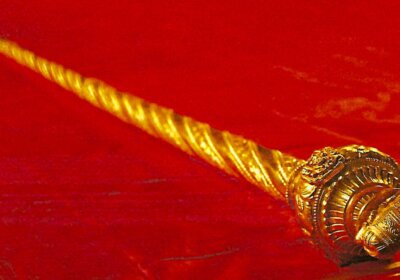
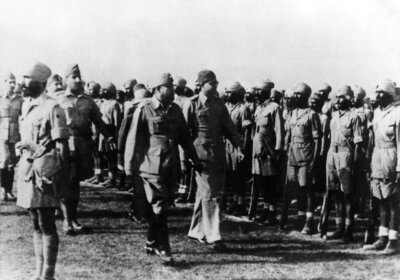

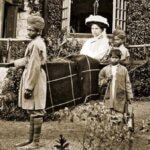
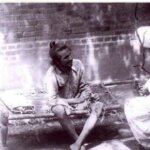





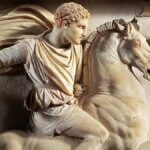

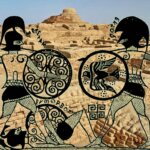
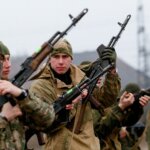




Leave a Reply